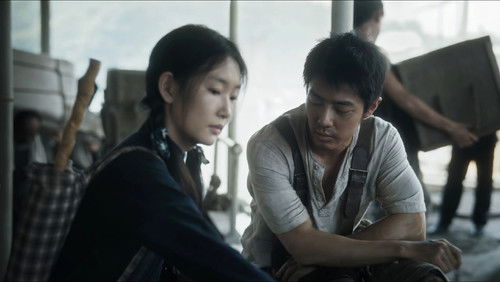Briefe aus dem Krieg (2016)
61KBriefe aus dem Krieg: Directed by Ivo Ferreira. With Miguel Nunes, Margarida Vila-Nova, Ricardo Pereira, João Pedro Vaz. Based on António Lobo Antunes’s novel, a collection of letters written by a young soldier, doctor and a aspirant writer, to his wife while he was serving in Angola between 1971 and 1973, during the Portuguese Colonial War, a war between Portugal with its former overseas provinces.
“Director Ivo Ferreira has chosen António Lobo Antunesu0026#39; letters from the front lines as the narrative backbone of his film about the Angolan War of Independence. Antunesu0026#39; letters are juxtaposed as near constant voice overs against an impressionistic backdrop of episodes from the war, with only a few scenes of actual dialogue scattered in between. Itu0026#39;s a technique which essentially fragments the film into two disjointed layers that rarely connect. u003cbr/u003eu003cbr/u003eAntunesu0026#39; letters are for the most part yearning vows of love, while the film depicts the boredom and cruelty of men at war. In a questionable reversal of roles, Antunesu0026#39; letters are read mostly by a gentle female voice, presumably his wifeu0026#39;s, who otherwise has no voice of her own. We see her in a few abstract scenes, yet she remains a ghost, a projection of the authoru0026#39;s longing, rather than becoming a character of her own, despite her constant presence as a narrator. This further serves to distance the vieweru0026#39;s perspective, even more so as the loosely connected episodes told on the visual level refuse to develop the characters they depict, or (with one exception) present the protagonists with meaningful moral choices.u003cbr/u003eu003cbr/u003eCartas da Guerra is undoubtedly visually striking, filmed in high-contrast black and white, and if Portuguese is your native language, it might be easier to connect its aural and visual levels (as opposed to reading through endless lovelorn monologues in two-language subtitles). In the end though, I doubt that it salvages a movie thatu0026#39;s at best an interesting narrative experiment, at worst a structural failure on a topic that deserved better.”









